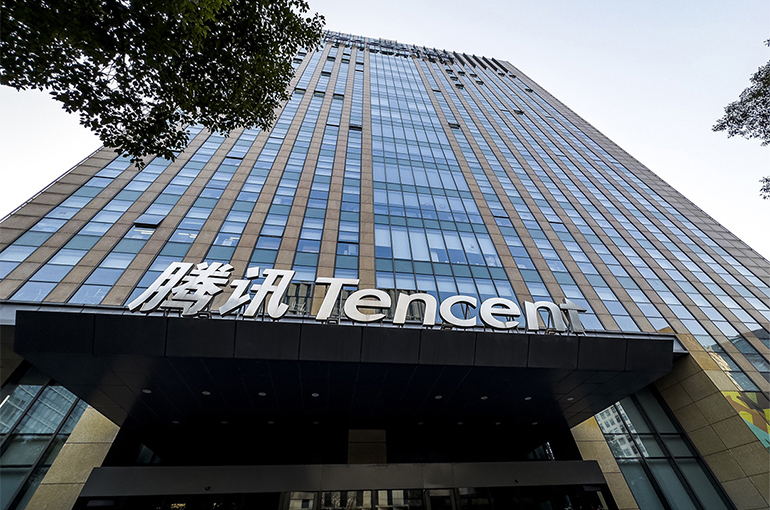 Tencent’s Hong Kong Market Cap Is Over Twice Alibaba’s After Shares Touch 16-Month High
Tencent’s Hong Kong Market Cap Is Over Twice Alibaba’s After Shares Touch 16-Month High(Yicai) May 17 -- Shares of Tencent Holdings rose to a new high in over a year in Hong Kong today, making the Chinese social media and gaming giant more than twice as valuable as Alibaba Group Holding.
Tencent [HKG: 0700] closed 0.4 percent higher at HKD395 (USD51) after reaching an intraday high of HKD400.20, a new peak since January 2023. Its market cap widened to HKD3.72 trillion (USD476.8 billion), more than a third higher than early this year.
Even shares of Alibaba [HKG: 9988] jumped by 7.5 percent to HKD85.70 (USD11) today after US investing newsletter publisher Citron Research yesterday predicted on X that the Chinese firm's US-listed equity could surge past USD100. In New York, Alibaba [NYSE: BABA] soared by 7.1 percent to USD86.70 that day.
However, Alibaba's Hong Kong-listed shares are less than 15 percent up since the start of the year with a market cap of HKD1.76 trillion, far behind the other long-standing tech titan that is improving its profitability.
In the first quarter, Tencent boosted its net profit by more than expected at 54 percent to CNY50.3 billion (USD7 billion) from a year ago under non-international financial reporting standards, the Shenzhen-based firm wrote in its interim report published on May 14. Revenue increased by 6 percent to CNY159.5 billion (USD22 billion), also exceeding expectations. The next trading day, shares of the firm gained 4 percent.
In contrast to Tencent, Alibaba is facing slumping profitability. In the first three months of this year, Alibaba's adjusted earnings before interest and taxes fell by 5 percent to CNY24 billion (USD3.3 billion) year-over-year while revenue grew 7 percent to CNY221.9 billion, per a report released on May 14.
Tencent has passed an inflection point in its business cycle, and its profit recovery is quite evident, Fu Yating, a researcher of internet companies at Xuanjia Private Equity Fund Management, said to Yicai. On the other hand, Alibaba is currently at the bottom of its cycle, especially with the shrinking profit margins in the e-commerce sector, Fu added.
From the perspective of entry barriers, Tencent's social media platform WeChat basically has a monopoly status, forming a strong social network effect and a high level of stickiness, which can be leveraged to develop high-profit businesses in gaming and advertising, Fun said, adding that the nature of Alibaba's core business of e-commerce is still retail, resulting in weaker stability as the business faces continuous competition from rivals vying for market share.
Editors: Dou Shicong, Emmi Laine